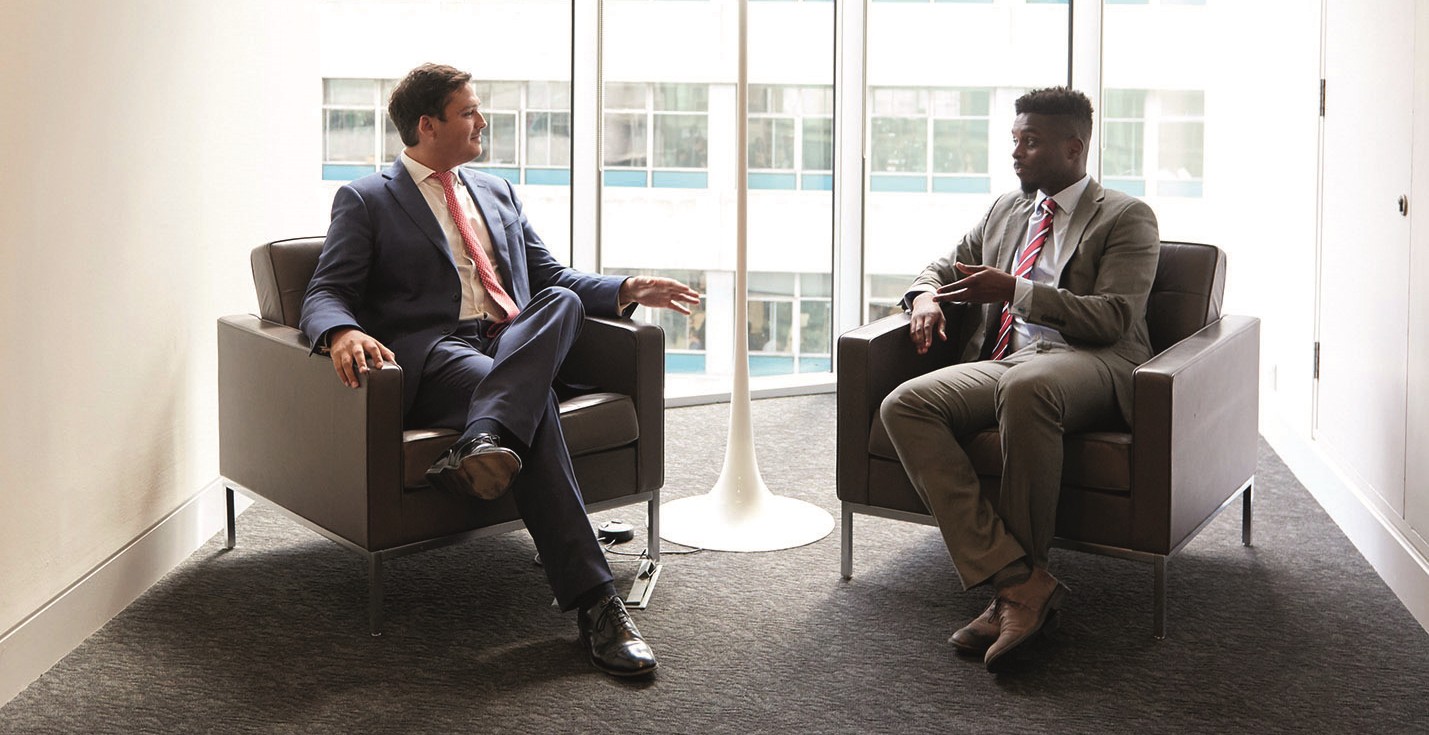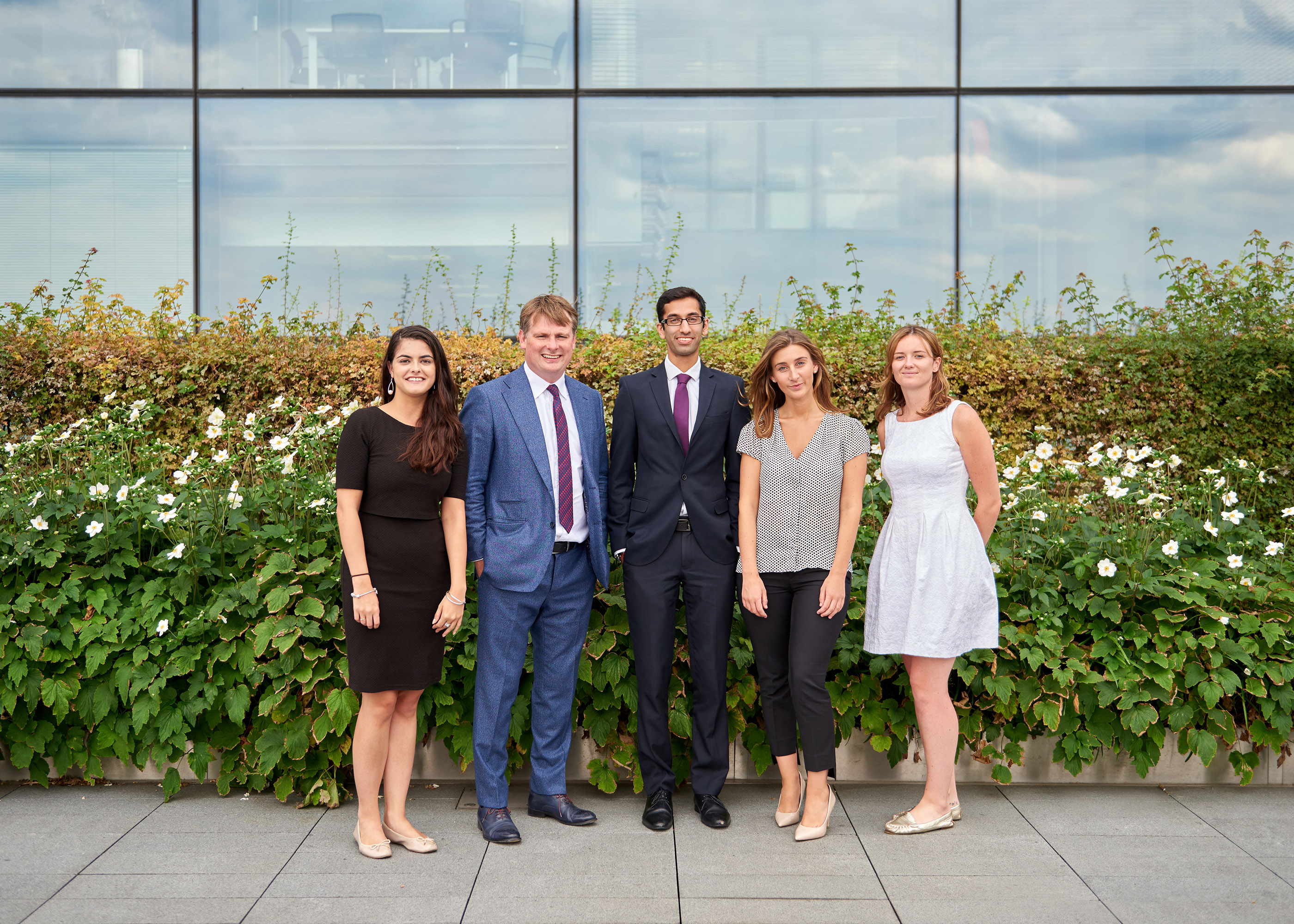Best Trainer – US Firm in the City
Kirkland & Ellis International LLP
Great supervision and training. I felt valued and supported as a trainee and was able to undertake a broad spectrum of work.

Best Trainer – US Firm in the City
Best Trainer – US Firm in the City
Covington & Burling LLP

Best Trainer – US Firm in the City
Best Trainer – US Firm in the City
Akin Gump Strauss Hauer & Feld

Best Trainer – US Firm in the City
Best Trainer – US Firm in the City
White & Case LLP

Best Trainer – US Firm in the City
Best Trainer – US Firm in the City
K&L Gates LLP

Best Trainer – US Firm in the City
Best Trainer – US Firm in the City
Morrison & Foerster (UK) LLP

Best Trainer – US Firm in the City
Best Trainer – US Firm in the City
Weil, Gotshal & Manges (London) LLP

Best Trainer – US Firm in the City
Best Trainer – US Firm in the City
Milbank Tweed Hadley & McCloy

Best Trainer – US Firm in the City
Best Trainer – US Firm in the City
Morrison & Foerster (UK) LLP

I am genuinely astounded by the level of support that I have received. The client contact has been far more than I was expecting and the partners always insist on getting you involved where possible.
No profile of Morrison & Foerster would be complete without mentioning what is possibly the best nickname in the entire legal profession – MoFo. The firm’s website explains how it came about: “In the 1970s, when teletype was used to send overseas cables, the firm purposely chose ‘mofo’ as our teletype address. The nickname stuck, and we later decided to use it as our web address. In many ways, the MoFo nickname is an affectionate reminder that while we are very serious about our clients’ work, we don’t take ourselves too seriously.”
We regularly find that trainees and associates operate at a level well above their peers at much larger firms
That encapsulation of the firm’s culture feeds into what is also affectionately known as the ‘Mofo mojo’, as Jeremy Jennings-Mares, capital markets partner and training principal, explains: “We do focus a great deal on the ethos of the firm – the MoFo feel – and so the people that we tend to recruit fit in with that.”

MoFo has more than 1,000 lawyers in 16 offices around the world and has had a London presence for over 35 years. However, the firm keeps its trainee intake deliberately small – one of its many selling points and a crucial reason that it is this year’s winner of the LCN Award for Best Trainer – US Firm in the City. Lynnsey McCall is head of legal talent and recruitment (Europe); her view is that an annual intake of around five is beneficial for all, particularly the trainees themselves. “It ensures that they get a lot of responsibility and the opportunity to progress quickly,” she maintains. “We regularly find that trainees and associates operate at a level well above their peers at much larger firms. They love having the chance to demonstrate what they can do and being rewarded quickly for their contributions. They are playing a valuable role; they can see that what they’re doing directly impacts the case, deal or matter.”
Eliska Macnerova, second-year trainee, cites diversity – of both people and work – as one of the main things that attracted her to the firm. “I came across MoFo when I was studying at King’s College,” she explains. “I researched them in advance of the law fair and liked that their tech sector and corporate law expertise aligned neatly with my master’s subjects and my dissertation. However, what truly set MoFo apart from other firms at the law fair was their diversity, both in terms of their trainee intake, with trainees recruited from different countries, backgrounds and age groups, and also in terms of work and clients – I spoke to one of their trainees about advising big corporations as well as small start-ups. Everything I’d read about them was confirmed when I spoke to them in person.”
Eliska had the chance to gain an even deeper understanding while on MoFo’s two-week vacation scheme – a prerequisite for being awarded a trainee contract. “I spent my time in the employment and corporate departments, and was given a variety of real work to do, including drafting, research, analysis and taking part in business development events,” she recalls. “At the end, I had an informal chat with grad rec about my experiences. I found the entire process very transparent – we were told who would be giving feedback on us, the timeline and how we would be assessed, which was very refreshing. Overall, the firm left a very good impression on me; they were welcoming and supportive throughout, and there was an emphasis on it being a two-way process, in that both parties had to be confident that it was a good fit.”
Jeremy explains why the vacation scheme plays such a central role in the recruitment process. “During that time, we’re not only assessing the candidates, but they’re assessing us on whether this is a place that they can imagine working and fitting in,” he points out. “From our point of view, we’re that much more certain than we would be if it were based solely on a couple of interviews that the person will contribute to the culture that we have created. In terms of settling in as trainees, it helps that they have all come through the vacation scheme, so will have worked for us for a couple of weeks and know each other already.” This process is further eased by the efforts that MoFo takes to keep in touch with its future joiners between being hired and before joining. “We were invited to all the Christmas and summer parties,” Eliska recollects. “And the firm facilitated an in-house internship for me at one of their clients, prior to me starting the legal practice course (LPC). So they kept in touch both socially and professionally! They also managed to match my experience on the internship with my first seat in the technology and transactions group, which was a good transition.”
Our trainees and associates have a voice and we listen to what they are looking for in terms of training and seek regular feedback about training that has been provided to ensure that we’re meeting their needs
Part of Lynnsey’s role over the last 18 months has involved revamping the training process, with a specific emphasis on induction training. “When I joined the firm, I worked closely with our professional support lawyer and the marketing and business development team, and solicited feedback from the partners and associates to look at what the trainees really needed for successful on-boarding,” she recalls. “We wanted to give them both the technical knowledge and practical skills to enable them to transition into their roles swiftly. As a result, we made some significant changes to our trainee orientation programme. We now work with some excellent external providers to deliver training on client care, time management and effective communication. These are three areas that are key to giving people a smooth start. We have been delighted with the feedback from the sessions and how quickly the trainees in the September 2016 intake were able to make an impact.” Eliska confirms that she felt “much more prepared after those two weeks, and it really smoothed the transition from LPC to a professional environment”.
Not content to arm trainees with an arsenal of useful skills, Lynnsey and the firm recognised the importance of supplementing that with training specifically designed for MoFo’s associates. Lynnsey says: “We offered them training on how to supervise and delegate, so that the skills the trainees were developing in respect of delivering high-quality work was mirrored by what the associates were learning about how to delegate effectively, give constructive feedback and engage trainees on the work they were given.” This all feeds into a strong emphasis on aligning training with the firm’s core values: “All of the training we offer fits in with MoFo’s strategy and key priorities, and overall vision for the firm. For example, one strategic priority is about capitalising on MoFo’s reputation and expertise, so the technical training fits into that. Another relates to building strong networks internally and externally, and the client care modules fit within that priority.”

Jeremy summarises the importance of building trainees’ key skills early: “We are extremely focused on them developing the practical skills which they will need on a day-to-day basis in relation to the clients that we have and the type of transactions that they will be involved with. Sometimes we bring external speakers and trainers in to help, including barristers and experts from the tech world, so it’s a good mix with our own people.” Early training leads to a confidence that encourages greater responsibility. “There is a high level of responsibility in terms of tasks; I have found myself writing articles on developments in the tech sphere, drafting commercial contracts, speaking directly with clients and supporting the department with research,” Eliska reports. “In corporate, there has been a lot more transactional work, including drafting due diligence reports, coordinating input from different departments, and working on mergers and acquisitions.” She is also benefitting from an expanding practice: “When I was on the vacation scheme, the funds and derivatives departments did not even exist in the London office. And now, I will be doing a split seat in these two departments! I’ve already been involved with helping to set up some funds and met a variety of clients, so I’ve already had some great experience with the funds department.”
Trainees are given a liaison mentor, who is there for them throughout the training contract and is distinct from their seat supervisor, serving more of a mentoring role. Encouraging senior people at the firm to get involved with recruitment and training has never been hard, comments Jeremy: “I get the feeling that all the lawyers in the London office are heavily invested in our trainee programme – partly because they see the beneficial effects of it on their particular practice area and client work. That starts from the outset, when we’re making recruitment decisions about who will be our next group of trainees – there is a high level of office-wide input into this, including feedback on the vacation scheme students. We like our prospective trainees to have contact with as many different people in the office as possible.”
That is also central to the famous MoFo feel. “The culture here is inclusive and compared to other firms, our structure is relatively flat, trainees seek and receive feedback directly from partners, and work with them closely,” maintains Lynnsey. “Our trainees and associates have a voice and we listen to what they are looking for in terms of training and seek regular feedback about training that has been provided to ensure that we’re meeting associates and trainees’ needs. We try hard to achieve the right balance between formal learning opportunities and the chance to work in teams on exceptional deals and cases, all of which helps to accelerate our trainees and associates’ development.”
Jeremy agrees: “Our culture is very important to us – that is more than just lip service. Equally, our culture is generally regarded as very attractive by recruits; there is more and more recognition in the market about how we operate as firm, so trainees do know what they’re getting. The focus on culture is something that we take very seriously.”
Reflecting back, in her first seat alone Eliska had the chance to use her language skills, working with colleagues, local counsel and clients in Belgium, Spain, France, Italy, Switzerland, Germany, the United States and Asia, building up her business development skills, and flying the flag for the firm overseas. “My most memorable experience was a trip to Cyprus,” she enthuses. ”Just the client from Hong Kong and me travelled there to carry out due diligence interviews. A lot of trust was placed in me to represent the firm on my own but I truly enjoyed it!” Her expectations of what life as a trainee at MoFo would be like have been surpassed: “On the vacation scheme, I felt that I could really be myself, the firm appreciated my set of skills and brought up my strengths. Everyone was very open to sharing their experiences, and was interested in me as an individual and my development. This support and culture has become even more apparent during my training contract and now I am excited about sharing my experiences and helping our new trainees.” MoFo shows no sign of losing its mojo any time soon.

Best Trainer – US Firm in the City
I am genuinely astounded by the level of support that I have received. The client contact has been far more than I was expecting and the partners always insist on getting you involved where possible.
Best Trainer – US Firm in the City
Akin Gump Strauss Hauer & Feld

A brilliant level of client contact from an early stage and a nurturing environment where each supervisor looks out for your best interests.
Their plush, gleaming offices and rigorous application criteria might give the impression that all City law firms are largely the same, but the briefest look into their unique cultures and clientele reveals just how apart from each other they really are. Perhaps the greatest contrast in approach is that between the US firms established in London and their UK-headquartered counterparts, and one of the most prestigious among the former is Akin Gump Strauss Hauer & Feld, which as one would expect, runs its award-winning training contract along different principles to its magic circle competitors.
“There is a clear divide between the programmes at larger UK firms and the style of training at a US firm such as Akin Gump, where the intake is smaller and the training contract involves more responsibility from day one,” explains Vance Chapman, training principal. “We supervise and look after our trainees, but they are treated almost as associates from an early stage. People who adapt to that ethos well are those who are self-starting, driven, and won’t feel too nervous about being thrown in at the deep end.”

The firm’s entrepreneurial philosophy dates from its founding in Dallas, Texas in 1945 by Robert Strauss and Richard Gump. Strauss, the son of Jewish immigrants from Germany, rose from humble beginnings to serve as an FBI agent during the Second World War, and went on to become an eminent lawyer and political figure, working directly with presidents Jimmy Carter, Ronald Reagan and George HW Bush. The firm’s rise mirrors its founder’s trajectory, maintaining its Texan roots but having long since established its headquarters in Washington DC, where it is well known for having influence on Capitol Hill. And like Strauss’ former presidential bosses, it does not limit itself to achievements in domestic affairs – internationally, Akin Gump is adviser to the governments of Japan, South Korea and Nicaragua.
We are more streamlined than some other firms and have a smaller trainee intake, so we offer a very different training experience.
With over 900 lawyers across 20 offices dotting the globe, the firm is an international giant. However, its vast reach does not equate to a sprawling London office hiring dozens of trainees a year. “One of our key differentiators from other US firms in the City is size,” explains Vicky Widdows, director of international legal recruiting and development. “We are more streamlined than some other firms and have a smaller trainee intake, so we offer a very different training experience. The advantage of having a growing but relatively small training programme is that there is a lot of flexibility. One of the things that people who have come through our programme have always appreciated is that there is an ongoing conversation about the future, as well as their experiences in each seat. We foster a culture in which people are valued as individuals and our flexibility, combined with a wide variety of practice areas to choose from, means that trainees usually secure their first-choice seats.”
The London office’s training programme launched in 2014 following a merger with Bingham McCutchen, in which the latter’s well-established training was carried over into the combined firm. This means that while training contracts are a relatively recent development for Akin Gump, they are underpinned by years of experience and knowledge. “The programme has grown alongside the business, from a standing start of a single trainee to an annual intake of five or six, currently,” explains Vance, who joined Akin Gump as part of the merger and was key in bringing training expertise across from Bingham. “We are a US firm, so in the early stages UK colleagues led the way in educating the wider partnership about the training process on this side of the Atlantic and they quickly saw the value of the programme – I actually think that some of the US partners are a little jealous of the way we do things here, compared to the States!”
Training is structured around the involvement of both partners and recruitment specialists. “As training principal, I work closely with Vicky, who heads a team of three who deal with all aspects of recruitment and trainee development,” Vance continues. “We are joined by two other partners for our regular training committee meetings, where we discuss ideas and strategy for the team to implement. I also report to the managing partner and get the firm’s hierarchy involved in the recruitment of candidates – many of our lawyers give presentations to vacation schemers and trainees.”
You are treated as an individual and the training experience is tailored to your needs.
The firm’s vacation scheme is an important part of the process, enabling candidates to gain a taste of what trainee life is like and weigh up whether the culture is a good fit for them. For second-seat trainee Lucy Jordan, the experience confirmed that the direction she had chosen was the right one. “I knew that I wanted to do something financial and corporate, and I had an interest in the energy sector,” she explains. “And because I studied Russian at university, I was keen to join a firm with a Moscow presence. As a truly international firm, Akin Gump leapt out at me during my research, so I applied for a place on the vacation scheme and was interviewed by Vicky and Vance. The reality of the job was among the things discussed – the self-starting nature of being a trainee at the firm was emphasised, as well as the opportunities for early responsibility and flexibility. I really enjoyed my experience on the scheme, which was split between the corporate and litigation departments. I was exposed to a wide variety of work which more than lived up to what I was looking for.”
Lucy secured her training contract following the vacation scheme and then studied for her GDL and LPC. “I was in regular contact with the legal recruitment and development team and the Christmas before I joined, they arranged a social for my intake to meet the current trainees and catch up with the recruiters,” she recalls. “This meant that I already knew lots of people at the firm before I started. I felt well prepared for my first day – I knew which seat I was going to be in and who my supervisor was already.”

Now a second-seat trainee in the oil and gas team (her first was in litigation), Lucy is enjoying the benefits of flexible, personalised training. “I’m going to Moscow for three months from September,” she enthuses. “I speak Russian and expressed an interest in doing this from the beginning, and the firm was able to give me the opportunity despite it not being a fixed secondment that happens more regularly like our Hong Kong secondment. The training contract has really enabled me to pursue the interests that made me initially want to apply to Akin Gump – even in litigation, many of the cases I worked on were in the energy sector.”
Individualising each trainee’s experience is key. “We listen to our trainees and don’t just treat them as commodities,” Vicky explains. “Trainees are given both responsibility and support, so there is a healthy mix of learning by doing and being shown the ropes by more experienced lawyers.”
Lucy agrees: “It is very personalised, which is something that I felt throughout the recruitment process too – you are treated as an individual and the training experience is tailored to your needs. I have monthly catch-ups with Vicky to discuss how I’m getting on, what is happening going forward and any concerns that I might have, and I think that ethos is quite unique.”
We listen to our trainees and don’t just treat them as commodities.
Alongside tailoring the programme to trainees’ individual needs, early responsibility is the other pillar of the firm’s training approach. “I think I definitely enjoy more responsibility than trainees I know at other firms and have been fully involved in all the deals I’ve worked on,” Lucy continues. “During my litigation seat my tasks included drafting letters, conducting legal research and helping out with witness statements. I was also lucky enough to work on two trials during the seat, which enabled me to gain great court exposure. I have gained a lot of drafting experience during my corporate seat, including board minutes and resolutions, letters to clients and other parties, and various types of agreements. I also have regular partner contact because our teams are quite small. For example, for the matter I’m working on right now, I am in a team of three alongside an associate and a partner. Partners will also regularly come up to me directly to ask me to help them with different pieces of work.”
The model is quite different to that of many of the firm’s competitors. “Teams are streamlined in comparison to those at many UK firms,” observes Vance. “We tend not to have large groupings consisting of a senior partner, junior partner, counsel, senior associate, junior associate and a couple of trainees. At Akin Gump, a team is far more likely to comprise a partner, one or two associates and a trainee. This is the best way to serve our client base – our teams are built to handle a lot of cross-practice work, which involves lawyers from the firm’s different departments working closely together.”
This also means that lawyers experience a wide variety of work from trainee level up. “One of the distinguishing aspects of our practice is the high proportion of cradle-to-grave fund work that we handle,” continues Vance. “For example, as a corporate partner I do different types of transactions for fund clients, which involves all kinds of M&A and capital markets work – financial restructurings alongside our market leading restructuring practice, joint ventures, acquisitions, sales and so on. This means that while most of our corporate work comes from a certain type of client, the transactions themselves vary widely, so lawyers are not siloed into one area as they are at some other firms. The same is true in our other practice groups, including our large emerging markets practice and energy specialism within London.”

For Lucy, the tailored, flexible training and early responsibility have made for a “thoroughly enjoyable” experience so far, not least because diving in at the deep end actually takes place within a highly supportive environment: “It’s very friendly – there is a lovely culture at the firm. Everyone is willing to take the time to explain tasks and how they fit into wider projects, and also to give you the necessary time to read up on things, which is particularly important when you are a first-seat trainee.” Vicky agrees: “The firm itself is very collegiate, with no comparable hierarchy to what you would find at many UK firms, and this creates a flexible, meritocratic environment.”
Few other firms can offer the tailored training that results from a small intake while also boasting size, influence and global reach. “If you are looking for a stimulating, exciting legal career that will keep your mind busy with complex problems and creative solutions, Akin Gump offers the perfect environment in which you can develop, by experiencing work that is interesting and will provide a sense of achievement,” sums up Vance. “If you are a self-starter who is happy with responsibility, we can help you to build a great career with us.”
By Josh Richman

Best Trainer – US Firm in the City
A brilliant level of client contact from an early stage and a nurturing environment where each supervisor looks out for your best interests.

